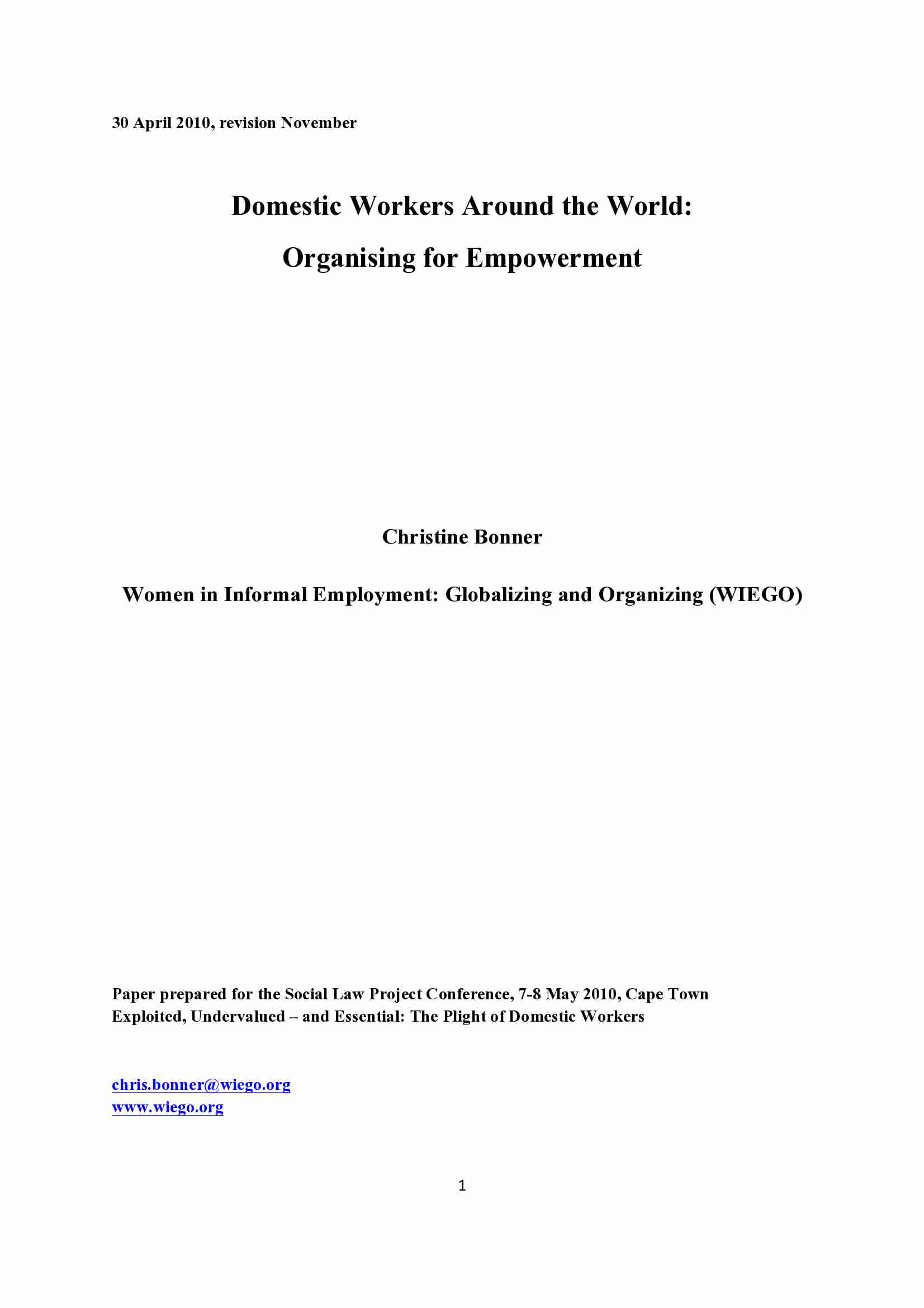Domestic Workers Around the World: Organising for Empowerment
Paper prepared for the Social Law Project Conference, 7-8 May 2010, Cape Town.
Abstract:
This paper examines a number of organising models and strategies of domestic workers. The organizations include trade unions; cooperatives; networks; alliances; non-governmental organizations; member based organizations; and community-based organizations. Furthermore, the paper analyses the links between organisational models and strategies, leading to some conclusions about the primary strategies of specific types of organisations: grassroots organising and base building are used by unions, MBOs, CBOs, and cooperatives; collective negotiations and representation are used by unions and MBOs; economic and livelihood development is a strategy associated with cooperatives; policy, legal and rights advocacy are used by NGOs, CBOs, networks, and alliances; mobilisation and campaigning are used by networks, alliances, and unions; social, welfare, training functions are linked to NGOs and CBOs. While these can often be regarded as primary strategies, the organisations often use multiple strategies and sometimes blur the lines between different organizational models.
View list of all: Research Reports

